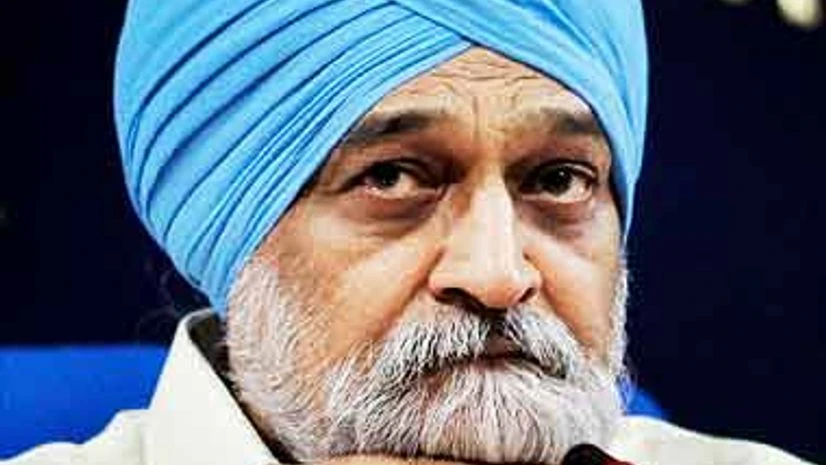Recalling the historic month of July 1991 of "dramatic measures" to rescue India from balance of payments crisis, former Planning Commission Vice Chairman Montek Singh Ahluwalia on Friday said that as an economist, he was not for "big bang" reforms.
"We are a large and democratic country and there is no harm in trying to build as much of a consensus as possible," Ahluwalia, who was commerce secretary at the time, said in an interview to Governance Now to mark 25 years of economic reforms.
He cited China's former "paramount leader", Deng Xiaoping's dictum that "the best way of crossing a river is by feeling the stones" in this regard.
Deng, who is considered the architect of a new brand of socialist thinking, combining Communist Party ideology with a pragmatic adoption of market economy practices, also famously said: "It doesn't matter if a cat is black or white, so long as it catches mice."
Decrying what he called "opportunistic reform" or "reform by stealth", Ahluwalia also said democratic institutions should not be blamed for the failures in achieving consensus.
"We need leaders who will try to explain the logic of what they are doing to the people. A more informed debate will produce better results," he said.
More From This Section
On that July in 1991, Ahluwalia said it is difficult today to imagine the scale of that crisis.
"The crisis was really severe. We had run out of foreign exchange, the rating agencies had downgraded us and imports had to be squeezed so severely that GDP growth dropped to 1.4% in 1991-92," he said.
Noting that speedy decision-making was the need of the hour, Ahluwalia said "a slew of drastic and dramatic measures were announced that July, allowing then Finance Minister Manmohan Singh to use the opportunity of the crisis to push structural reform".
"Dr Singh didn't just act to control the crisis. He rightly chose to pursue structural reforms, without which the economy would never be able to grow rapidly. Most people have no idea what an absurd control system we were running, with the government interfering in all sorts of decisions which were better left to the private sector responding to the market," said Ahluwalia, who has also served as the first Director of the Independent Evaluation Office at the International Monetary Fund.
"The lesson is we need much faster decision making with less shuffling of files and ministers taking responsibility," he said.
On July 1, 1991, the Reserve Bank of India announced a sharply lowered rate for the rupee at 9% lower than the previous day's levels.
Two days later, the RBI devalued the currency by another 11%, while the twin devaluation marked the beginning of a complete overhaul of the economy as also of the currency markets.
"We had to tackle the exchange rate at the start because there was a lot of speculation on the rupee's future. And if we had not acted creatively then, the whole system would have been impacted with dire consequences," Manmohan Singh said in an interview later to the Indian Express.
Twenty-five years on, India's current foreign exchange reserves stand at a record of over $360 billion, according to the RBI, while the country is now a $2 trillion-plus economy, which is more than six times the size it was in 1991.

)
